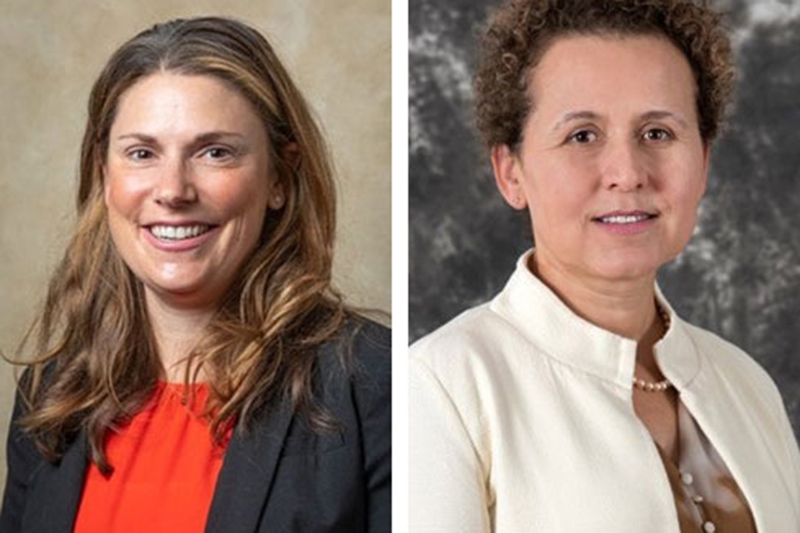Two College of Engineering researchers are exploring how the use of real-time data on vessel movements can help government agencies make better-informed decisions about shipping infrastructure to reduce costs and ultimately improve the nation's supply chains.
Sarah Hernandez, associate professor of civil engineering, and Sandra Eksioglu, professor of industrial engineering, were awarded $222,039 for their study by the U.S. Army Corp of Engineers Coastal Hydraulics Laboratory at the U.S. Army Engineering Research and Development Center.
The agencies historically have relied on manually collected surveys of shippers and carriers to support their decisions about operations maintenance and infrastructure needs for waterways and ports. Detailed information about the movement of goods and vessels is important when scheduling lock and dam repairs, channel dredging and other maintenance, but the way data is processed means it's not available until it's about two years old.
Hernandez and Eksioglu will use anonymized vessel data collected by the U.S. Coast Guard to make predictions about waterway and port traffic, giving the agencies more accurate information on waterborne commerce trends.
"This work is exciting for our team because it fills a critical gap in the type of data that can be available for strategic decision making," said Hernandez, the principal investigator. "Our team works to use existing data sets in new and exciting ways to close data gaps that prevent transportation and other government agencies from making better informed decisions."
The Coast Guard collects mandated Automatic Identification System data for purposes of safety and navigation. Using the data predictively presents a cost-effective way to gain insights into critical freight supply chains, said Eksioglu, co-principal investigator.
"This work will provide near real-time insight into how our inland and coastal waterways function within the freight supply chains in the U.S.," she said.
More efficient management of waterways will make them a more competitive option for shipping, potentially meaning a reduction in the costs for food, building products and other consumable goods, the researchers say.
The research team includes Sanjeev Bhurtyal, a Ph.D. candidate in civil engineering, and Hieu Bui, Ph.D. candidate in industrial engineering.
Topics
Contacts
Sarah Hernandez, associate professor
Department of Civil Engineering
479-575-4182,
Jennifer P. Cook, director of communications
College of Engineering
479-575-5697,
